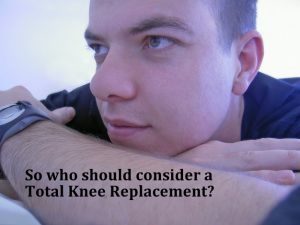
If knee pain is affecting your ability to perform daily activities, knee replacement surgery may provide the relief you need. And recent advancements in knee replacement surgery have made this a viable procedure for many people according to New Orleans orthopedic surgeon Dr. Richard Meyer. Dr. Richard Meyer.
Knee replacement surgery is a procedure in which a damaged or diseased knee joint is replaced with a prosthesis – or artificial joint.
Knee replacement surgery is typically performed under general anesthesia. During surgery, your New Orleans orthopedic surgeon removes the cartilage and bone that has been damaged and replaces them with new metal and plastic joint surfaces that will restore the functions of the knee.
With a relatively new technique – minimally invasive knee replacement surgery – the incisions made are approximately half orthopedic surgeons are urged to move their foot and ankle immediately following surgery to increase blood flow in the leg muscles to help prevent leg swelling and reduce the risk of blood clots. Physical therapy is usually started the day after surgery and will continue until strength and motion return.
Not all worsening knee conditions require a knee replacement, however, total knee replacement surgery may be recommended for:
- Knee pain that has not responded to more than six months of therapy;
- Knee pain that prohibits activities of your daily living;
- Arthritis of the knee;
- Significant stiffness in your knee;
- Lock-knees or bow-legs;
- Certain tumors of the knee.
About 90 percent of patients who have total knee replacement surgery are pain free, and most of them do not need assistance with walking. Prostheses last an average of 10 to 15 years, but it’s important to remember that an artificial knee is not a normal knee and that activities that overextend the artificial knee must be avoided.
If you feel that you may be a candidate for knee replacement surgery, contact your New Orleans orthopedic surgeon Dr. Richard Meyer today to Schedule a Consultation.